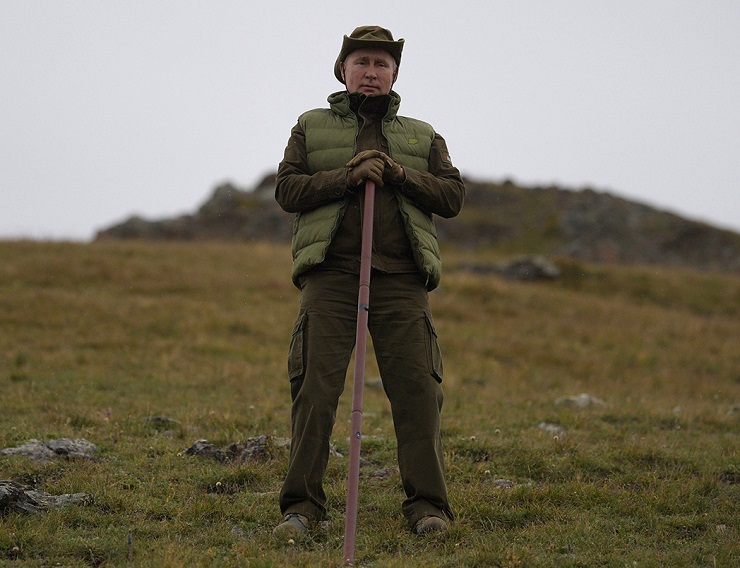When you imagine Russia’s Vladimir Putin, do you get a vision of a tougher and older Edward Scissorhands? Neither do I, but apparently western policy advisers see Russia’s president as some kind of mad gardener hell-bent on trimming world powers to his liking. The latest example being a Carnegie Endowment storytelling how Russia is the weed killer preventing NATO blossoming. No, I am not kidding.
Paul Stonski, the former senior analyst for the US State Department’s Bureau of Intelligence and Research, says the garden shear-wielding Russian leader is out to cut NATO off at its roots. Which if you think about it, is both true and a good thing. But like all western security analysts, the narrative is always about job security.
This story, entitled “A Difficult Balancing Act: Russia’s Role in the Eastern Mediterranean,” would be brilliant if everyone on Earth were dumb as a rock. The author runs with his Eurasian analytical bone until, at a point, he looks down to see a Russian dog grasping the same bone in its teeth. Sorry for the metaphors, but western think tanks always end up blaming Russia and Putin for exactly what the elite world order in the west is doing. Expanding and growing geographically. This is why there’s always a reference to Putin reclaiming the Soviet Union. It’s because the geopolitical zombies in Washington think this way. Surely, Putin wants what we want, right?
“Russia’s assertiveness in the Eastern Mediterranean is part of its broader strategy for undermining the cohesion of the North Atlantic Treaty Organization (NATO) and the European Union (EU) and thus complicating the Western alliance’s ability to operate, plan, and formulate policy.”
Or, in other words, Russia would like to hang on to her land, richest, and culture as long as possible. As if US administrations and the satraps in Europe were not envisioning a Fourth Reich all the time. Let’s face it, the only way Exxon can grow is by selling Russian gas, every place else is almost out. But let’s turn to our gardening motif, and the wildflowers of NATO Mr. Stonski calls “weak links” in NATO’s horticulture experiment. According to Stronski, Greece, Turkey, and Cyprus are the bloc’s dandelions, daisies, and chrysanthemums waving in the eastern Mediterranean sun. Just blossoming and ready for Putin to hedge-trim into the sign of the hammer and sickle again. Only the Russian constant gardener has a small problem.
To be honest, somebody needs to formulate a new weed killer for Washington think tank botanist ideas. Take Ankara’s purchase of the Russian S-400 missile system, for instance. It has never occurred to the westerners that Turkey nixed the F-35 and Patriot systems because the American tech just did not work. No, buying a reliable system to protect your country is a policy move period. Especially in a place where your air force generals hold such sway. In America, the DoD buys what they are told to, but in Turkey, there are other things to consider. Again, I am having trouble visualizing Putin’s long garden shears culling the daisies in preference to the dandelions. “Which ones do I make hammers, and which ones sickles?” I can just hear Putin querying Peskov or some other aide.
Well, the truth of the matter is not hidden in some rare plant DNA. Everybody is working for the harvest. And Putin’s job as chief Russian blossom tender is to make sure NATO and the western elites don’t take a lawnmower to the future harvests of his country. Isn’t that what he’s supposed to be doing? I wonder why the west just cannot admit there’s a Jolly Green Giant itching to plant little green peas and Brussels sprouts all over the world’s biggest country. Paul Stonski types many words to express that the west needs to garden better than Russia in order to cultivate eastern fields.
Come on Carnegie boys, can’t we at least get into advanced botany, Cytology, or even Epigenetics? Lawnmower detente is just old hat.
Phil Butler, is a policy investigator and analyst, a political scientist and expert on Eastern Europe, he’s an author of the recent bestseller “Putin’s Praetorians” and other books. He writes exclusively for the online magazine “New Eastern Outlook.”

